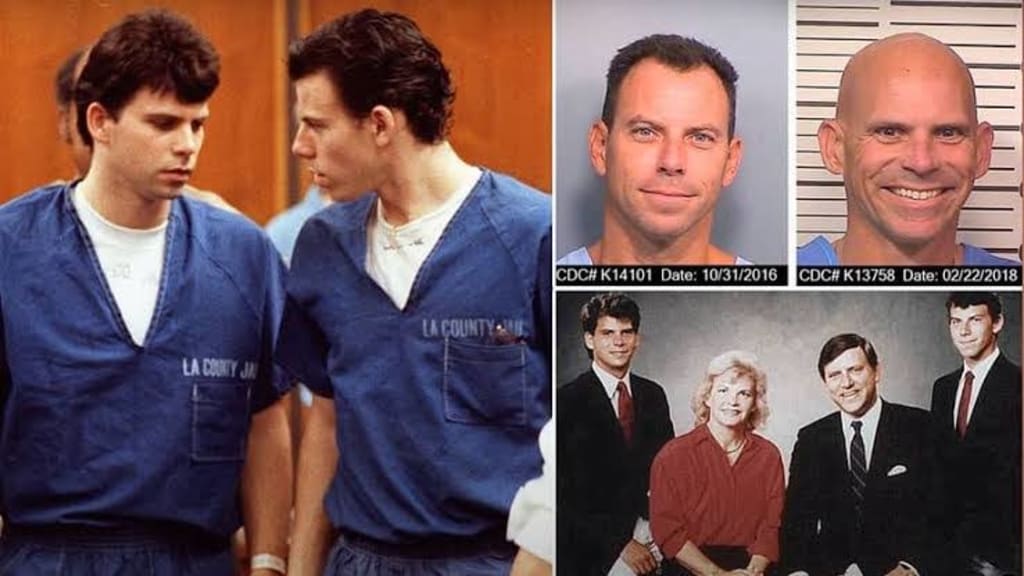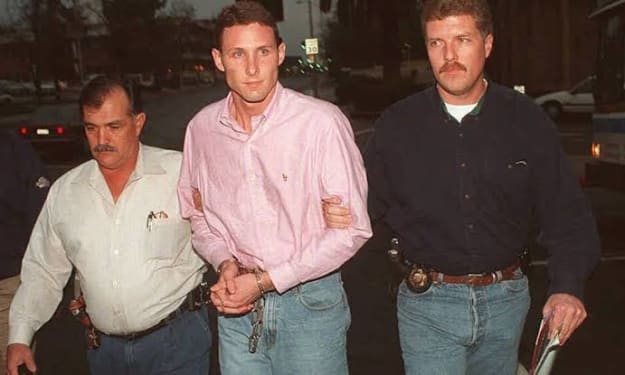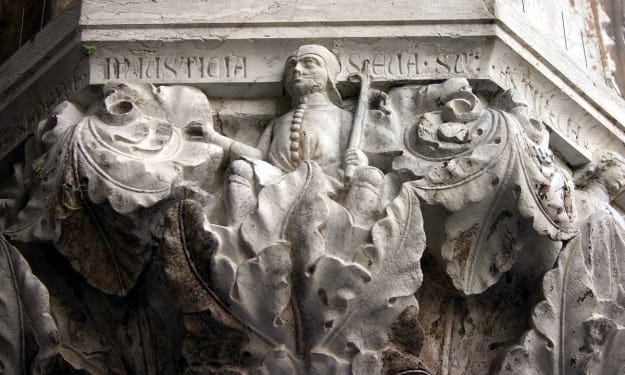The Menendez Brothers - Sibling Betrayal and the Beverly Hills Murder
Step inside the courtroom drama that unfolded during the Menendez trial in 1993, as defense and prosecution clashed over narratives of abuse, self-defense, and the brothers' motives behind the heinous crime.

In the glitzy landscape of Beverly Hills, the Menendez brothers, Lyle and Erik, orchestrated one of the most shocking and sensational murders of the 1990s. Their affluent lifestyle, coupled with the horrific nature of the crime, captured the nation's attention and sparked a trial that delved into dark family secrets.
Background:
Lyle and Erik Menendez were born into wealth and privilege, their father, Jose Menendez, a successful entertainment executive. However, behind closed doors, the family was marred by allegations of abuse and dysfunction. In August 1989, the brothers brutally murdered their parents, Jose and Kitty Menendez, in the family's opulent Beverly Hills mansion.
The Crime:
On the fateful night of August 20, 1989, Lyle and Erik ambushed their parents with shotguns, firing multiple rounds and leaving a grisly crime scene. The brothers later claimed that the murders were a response to years of physical and emotional abuse at the hands of their parents, alleging that they feared for their lives.
Trial and Revelations:
The Menendez trial began in 1993, marked by a defense strategy centered on portraying the brothers as victims of long-term abuse seeking justice. The courtroom became a stage for graphic details of the alleged mistreatment, challenging the perception of the Menendez family as a symbol of prosperity.
The defense argued that the brothers acted out of fear and desperation, attempting to escape a cycle of abuse. However, the prosecution painted a different picture, highlighting the calculated nature of the murders and pointing to the brothers' lavish spending sprees in the aftermath as evidence of greed rather than self-defense.
Verdict and Sentencing:
The first trial ended in a hung jury in 1994, leading to a retrial the following year. In the second trial, both Lyle and Erik Menendez were found guilty of first-degree murder and conspiracy to commit murder. They were sentenced to life in prison without the possibility of parole.
The verdict in the Menendez trial marked a pivotal moment in legal history, resonating with the public and legal scholars alike. The decision to convict Lyle and Erik Menendez of first-degree murder and conspiracy to commit murder sent shockwaves through the criminal justice system. Supporters of the brothers saw the verdict as a rare acknowledgment of the long-lasting psychological trauma inflicted by parental abuse, urging a reconsideration of traditional notions of self-defense. Critics, on the other hand, raised concerns about the potential precedent the case set, questioning whether the legal system was equipped to navigate the complexities of familial abuse. The Menendez trial underscored the challenges of balancing justice and compassion, prompting a broader societal reflection on the adequacy of legal frameworks in addressing cases where the line between victim and perpetrator is blurred by years of suffering and manipulation.
Legacy and Controversy:
The Menendez case left an indelible mark on the public consciousness, raising questions about the intersection of wealth, abuse, and justice. The brothers' defense strategy of portraying themselves as abused children seeking retribution sparked debates about the validity of the claims and the role of the legal system in addressing such complex family dynamics.
The case of the Menendez brothers remains a cautionary tale, illustrating the devastating consequences of unchecked privilege and the potential for profound betrayal within the confines of family. The chilling details of the crime and the subsequent trials continue to captivate true crime enthusiasts, offering a glimpse into the dark underbelly of seemingly picture-perfect lives in the exclusive enclaves of Beverly Hills.
The legacy of the Menendez case extends beyond the confines of the courtroom, sparking ongoing debates and controversies. Some view the brothers as victims who resorted to extreme measures to escape an abusive environment, emphasizing the complexities of family dynamics and the lasting impact of trauma. Conversely, skeptics question the authenticity of the abuse claims, arguing that the brothers' extravagant spending following the murders suggests a motive rooted in financial gain rather than self-defense. This enduring controversy has fueled discussions on the intersection of privilege, abuse, and justice, prompting society to grapple with difficult questions about the blurred lines between victimhood and criminality in cases of familial betrayal. The Menendez case remains a polarizing chapter in true crime history, inviting continual reevaluation of the intricate factors at play within the dark corridors of family secrets and deadly betrayal.





Comments
There are no comments for this story
Be the first to respond and start the conversation.